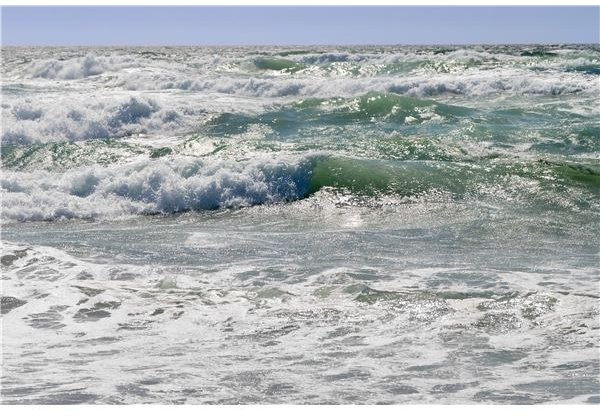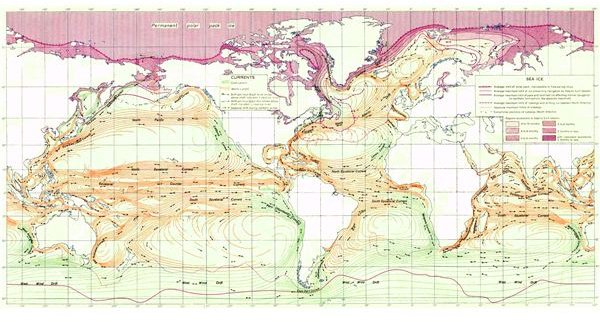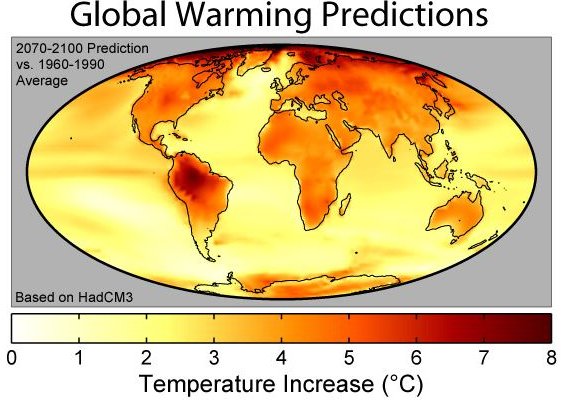How Do Oceans Affect the Weather and Climate? The Daily Weather Patterns and Climate Influenced by Ocean Currents
If you have ever wondered, “How do oceans affect weather and climate?”, then you are not alone. A major factor of climate change is the temperature of ocean waters across the world, and how they are changing on a yearly basis. Ocean water temperatures have a great effect on weather patterns, including creating hurricanes and providing energy for coastal storms.
Continental Shift and Oceans
How do oceans affect weather and climate? It largely has to do with continental drift and shifting tectonic plates. The ever changing location of the land masses, and even their shape, has a direct correlation to how the ocean currents will flow. Of course, land mass shifts only about 1.97 inches (5 cm) per year, and mountain ranges rise about 0.040 inches (1 mm) per year, so it takes millions of years for this to affect any changes in the oceans.
Rapid change in ocean circulation and up-welling can impact weather patterns and climate over a shorter period of time. Fluctuations and variations in climate and weather can occur over a period of years to centuries, where scientists notice a difference in climate from earlier time periods to future ones.
Ocean Evaporation
Precipitation is due to the sun’s energy evaporating large amounts of ocean water, condensing it into clouds and eventually rain. Eventually, runoff from the land will return to the ocean in a never ending process known as the hydrologic cycle. Scientists find that at least 85 percent of the water vapor in the atmosphere comes from evaporated ocean water.
Water is able to hold a temperature for a long time, which means it takes a long time for ocean water to either heat up or cool down. It takes an abundance of energy to heat the ocean water, and it actually reflects very little of the sun’s energy. This means it absorbs more than it reflects, and because the Earth is made up of 70 percent water, the ocean has a huge impact on weather and climate.
More carbon in the atmosphere means the oceans will heat up quicker with evaporation occurring more frequently. Interestingly, the added water vapor in the atmosphere is considered a greenhouse gas in itself and adds to global warming. Of course, there is the reverse side to this as well; the more evaporated water in the atmosphere, the more clouds, which promote the cooling of the Earth’s temperature.

North Atlantic Current and the Gulf Stream
Ocean currents are caused by winds blowing over the surface of the water. While the surface water is pushed along these winds, pressure begins to build up creating gradients in the water. These gradients create currents within the water that end up transferring heat from the equator to each of the poles. When the surface water drifts away, it causes nutrient rich cold water to rise to the surface, replacing the surface water; this is known as up-welling. This is one of the main transfers of heat within the ocean to the climate.
Currents run north and south as well as east to west, carrying both warmer or cooler water thousands of miles around the continents. This water will either warm or cool the air over it, and indirectly the air over the land as well. For example, the Gulf Stream is a current of water running from the tropical and subtropical south Atlantic and moves northwards toward Europe.
The North Atlantic current is made up of water from both the Gulf Stream and the Slope Water current. It runs from the Grand Banks and Mid-Atlantic Range to the Newfoundland Ridge and the Gulf Stream. The North Atlantic current continues the bulk of the Gulf Stream past the tropical Atlantic. The current turns at a clockwise rotation and is one of the main sources of weather for the Northern Hemisphere.

Oceans and Storms
Oceans have a great impact on the severity and amount of storms land masses receive in a given year. The warmer the ocean tends to be, the stronger a hurricane will become, as the storm feeds and gains energy from evaporation of warm ocean waters. While many factors determine the strength of a hurricane or tropical storm, scientists all agree that as the ocean waters increase in temperature, so will increase the number and severity of tropical storm systems.
References
GDRC: How the Oceans Affect Climate
Missouri Department of Natural Resources: Global Climate Change: Oceans Effect on Climate
